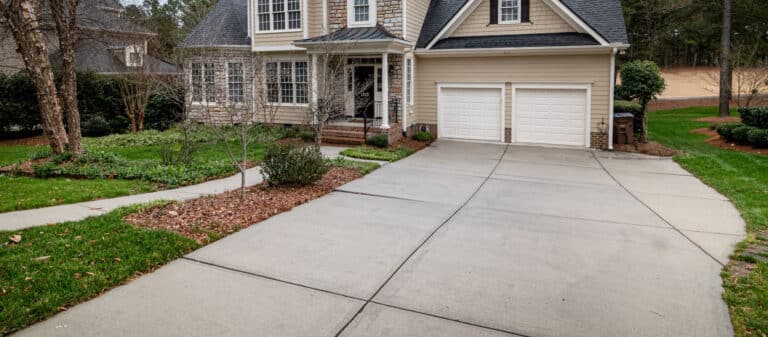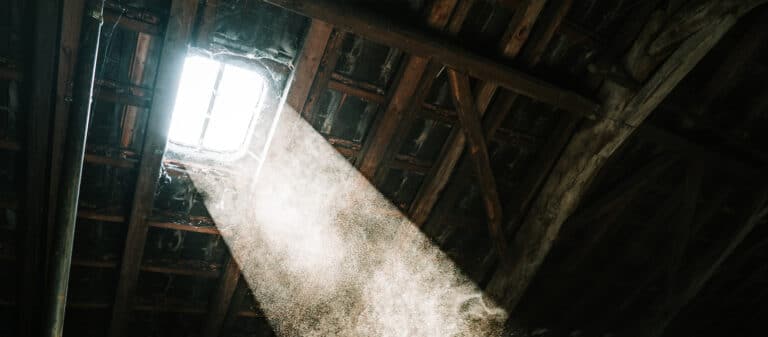According to the EPA, brand-new insulation can save homeowners up to 15% on their energy bills, on average. Over time, the investment you make in insulating your NEPA home with higher-quality materials will pay for itself via energy savings, increased home value, and improved comfort.
Although there are many materials to choose from, the most important decision in a home insulation project is choosing the right insulation contractor.
Follow these steps to select the right insulation contractor for your next project to gain greater peace of mind.
Why Work with an Insulation Contractor
Many contractors offer some form of insulation installation, but we highly recommend working with an exclusive insulation contractor. Insulation contractors have more experience and knowledge that will lead to:
- Proper installation of the materials, ensuring long-lasting use.
- Appropriate selection of insulation materials based on recommended R-values and budgetary concerns.
- Adequate ventilation to ensure that insulation does not lead to moisture issues, such as mold and degradation of surrounding materials.
- Access to specialized materials, such as spray foam, that offer better thermal resistance.
DIY installation is possible for small insulation projects that use fiberglass batts or rigid foam boards. However, it is always recommended to work with a professional insulation contractor to ensure that insulation is installed properly and ventilated.
9 Essentials to Look for in an Insulation Contractor
After deciding to work with an insulation contractor and not just a general contractor, there are several things to look for to help you find the right insulation contractor.
1. Check Credentials and Certifications
Look for an insulation contractor with credentials and certificates exclusive to the industry. Some common examples include:
- RESNET certification
- Certification from the BPI (Building Performance Institute)
- Licensing to work within Pennsylvania Building Code requirements
Additionally, reputable contractors should have adequate insurance that protects your home against any potential damage or liability.
2. Ask About Warranties and Guarantees
Many contractors offer warranties that help protect your investment and ensure that you will not be on the hook for future repairs. Some warranties to ask about include:
- Workmanship Warranties: Look for contractors who offer a warranty on their labor, typically lasting one to five years.
- Manufacturer Warranties: Inquire about warranties on the insulation materials themselves. High-quality products often come with longer manufacturer warranties.
3. Experience Matters
The primary reason we recommend an insulation contractor over a general contractor is that the former has greater knowledge of the industry and is more likely to get the job done right. A contractor with several years of experience is more likely to understand the complexities of different insulation materials and techniques. Inquire about their experience and any specializations that the contractor may have, whether that’s using special materials, such as spray foam and cellulose, or working with specific projects, such as existing homes or new builds.
4. Evaluate Their Knowledge of Building Codes
Insulation installation must comply with local building codes and energy standards. An experienced contractor should be well-versed in these regulations and able to ensure that your insulation meets the required R-values (which measure insulation’s effectiveness) for your climate zone.
In addition, make sure that your insulation contractor follows recommended practices developed by the International Energy Conservation Code (IECC), as well as follows recommended R-values from EnergyStar.
5. Request Detailed Quotes
When gathering estimates from contractors, it’s important to get detailed, itemized quotes that break down the costs of materials, labor, and any additional services, such as removing old insulation. Be wary of contractors who provide vague or unusually low estimates, as this could indicate corner-cutting, the use of subpar materials, or hidden costs you could incur down the road.
6. Understand the Types of Insulation Being Offered
Different contractors may specialize in different types of insulation, and it’s important to understand your options. The best materials will also be the most expensive, so comparing the R-value of insulation with its cost is essential. Some common types of insulation include:
- Spray Foam: Offers superior energy efficiency and air sealing but is considered the most expensive.
- Fiberglass: Available in batts or blown-in, fiberglass is a suitable alternative to spray foam (though with a smaller R-value) for insulating your home.
- Cellulose: Made from recycled materials and eco-friendly, cellulose is a popular alternative for people looking for an environmentally friendly option.
7. Look for Energy Efficiency Expertise
A good insulation contractor will not only install insulation but also provide energy-saving recommendations. In addition to insulation, look for a contractor that provides air sealing, as this will prevent heat loss and maximize the value of your insulation.
8. Check Online Reviews and Testimonials
Online reviews and testimonials are valuable resources when vetting insulation contractors. Platforms such as Google, Yelp, and the Better Business Bureau can provide insight into the experiences of past clients. Look closely at previous customer feedback for any red flags that you will want to avoid from an unprofessional contractor.
9. Assess Their Communication and Professionalism
Finally, it’s important to work with an insulation contractor that you trust and have a good rapport with. Communication is key, as insulation contractors should always be transparent about pricing and how they perform tasks.
If you’re looking for a trusted insulation contractor with glowing reviews on Google, turn no further than the experts at NEPA EnergySmart. We specialize in all kinds of insulation materials, including spray foam, and work with all types of buildings, including commercial and residential housing. Contact us today to schedule your free estimate.
FAQs
Why should I hire a professional insulation contractor?
A professional contractor ensures proper installation, compliance with building codes, and maximizes your home’s energy efficiency, saving you time and money in the long run.
What types of insulation does a contractor offer?
A good contractor should offer options like fiberglass, spray foam,and cellulose, and explain the pros and cons of each for your home.
Do insulation contractors offer warranties?
Yes, many contractors offer warranties on both workmanship and the insulation materials. Be sure to ask about the duration and coverage of these warranties.











